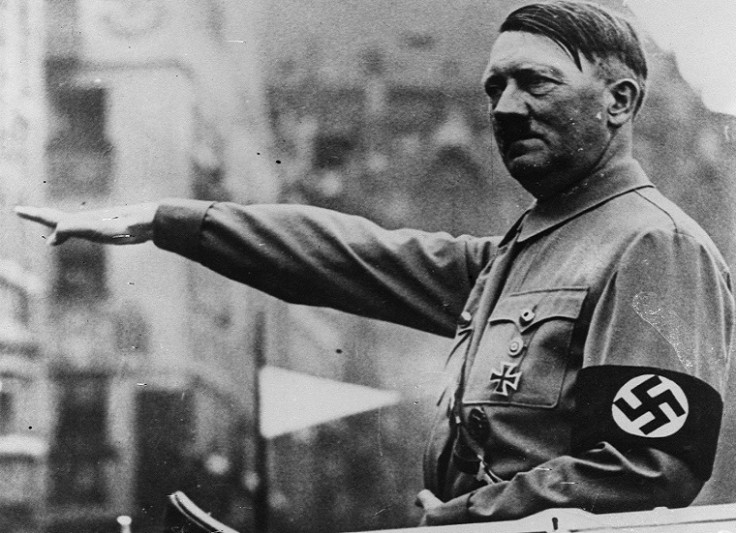Dunkirk anniversary: The real reason Hitler let the British troops go
Why did Hitler decide not to press ahead with a final thrust which would surely have destroyed the Allied troops?

On 20 May 1940 Hitler's tanks reached the Channel coast near Noyelles-sur-Mer. Within less than two weeks they had thus achieved what the German army had failed to do in four years in 1914-18.
Huge parts of Northern France and neighbouring Belgium were now under German control. The war of Nazi Germany against its neighbours in Western Europe had reached its climax. In a daring operation, which had begun on 10 May, they seemed on the verge of victory.
Only a few bridgeheads were still held by British, French and Belgian forces. The most important one was Dunkirk. Its defence and, moreover, the evacuation of 338,682 Allied soldiers between 26 May and 4 June under the guns of German tanks, soon became part of British folklore.
The withdrawal was facilitated by the Germans' decision not to finish the Allies off. Hitler and his commanders could have pushed ahead and made the killer blow, but decided to effectively let the Allies off the hook.
This decision was surprising at the time and looks even more surprising in hindsight, giving rise to much speculation. This was nourished by one of Hitler's last statements before his suicide on 30 April 1945, claiming that he had allowed the British Expeditionary Force (BEF) to escape as a "sporting gesture" in order to induce British Prime Minister Winston S. Churchill to conclude an agreement with Nazi Germany.
But what actually happened? Why did Hitler decide not to press ahead with a final thrust which would surely have destroyed the Allied troops?
After being forced to withdraw from a number of battles to avoid encirclement, the Allies were eventually left with their backs against the wall, in a huge pocket near Dunkirk. They were surrounded by thousands of German troops and tanks and under the gaze of German aircraft, which had also inflicted heavy losses upon the Allies in the weeks before.
On 24 May Generals von Kluge and von Rundstedt issued the order for a halt of the German 4th Army. Hitler, as is often overlooked, only sanctioned it the same day. The reasons for this halt were manifold.
Both generals had fought in World War I and realised that, like at the Marne in 1914, a sudden Allied counter-attack could change the course of the whole war. In their eyes this risk still existed, because the British and French still offered resistance in neighbouring areas. At the same time, they wanted to give their armies time to rest, repair and replenish after a thrust whose speed and distance had taken everyone by surprise.
The decision by generals von Kluge and Rundstedt did not go uncontested. The army's chief of staff, general von Brauchitsch, disagreed and tried to repeal it at once, though without success. Hitler, for the time being, remained firm. His reasons have been a matter of much controversy.
German historian Karl Heinz Friedser, after close scrutiny of all available documents, has convincingly argued that Hitler did not, in fact, call off the attack as an olive branch to Churchill. In fact his decision was the result of his intention to, once and for all, make it clear to the military leadership that he was in fact the supreme commander of the German armed forces, and not them.
The attack resumed - but too late
On 26 May the Germans began to realise that this decision had been a terrible mistake. As a result the attack upon Dunkirk was resumed, though under different circumstances. Now, the Allies had had enough time to organise the evacuation of their troops in Operation Dynamo - as well as improve their defences and offer stiff resistance to the attacker.
Thousands of Allied soldiers were now transferred across the channel by a fleet consisting of all kinds of ships – ranging from private sailing boats to Channel ferries and Royal Navy destroyers. The Allied escape owed much to luck. Calm waters allowed the evacuation fleet to get away quickly, while low clouds helped protect it from attacks by the Luftwaffe, which had to fly in from distant airfields in Germany, thus losing important time.

Most importantly the Allies themselves could now rely upon the Royal Airforce. Its newest fighter plane, the Spitfire, proved an important means in shielding the evacuation from air attack by Messerschmidt and other planes. Goering's promise to annihilate the BEF thus proved a completely wrong forecast of what was going to happen.
When the Germans eventually reached the port of Dunkirk on 4 June, thousands of troops had safely reached British soil. The Allies had lost scores of men in combat and during the evacuation, and given up great stores of materiel including 272 ships, 177 aircraft and 2,400 guns. Yet the troops who survived would prove a crucial asset in the years that followed.
The German army had won an important battle in France, but the megalomania of Hitler and the dysfunction at the heart of the German high command denied them the chance to win the war.
Michael Epkenhans is a German military historian who specialises in the German Imperial Navy. He is director of research for the Militärgeschichtliches Forschungsamt der Bundeswehr in Potsdam, and he has published several books, including this biography of Prussian naval hero Tirpitz.
© Copyright IBTimes 2025. All rights reserved.





















